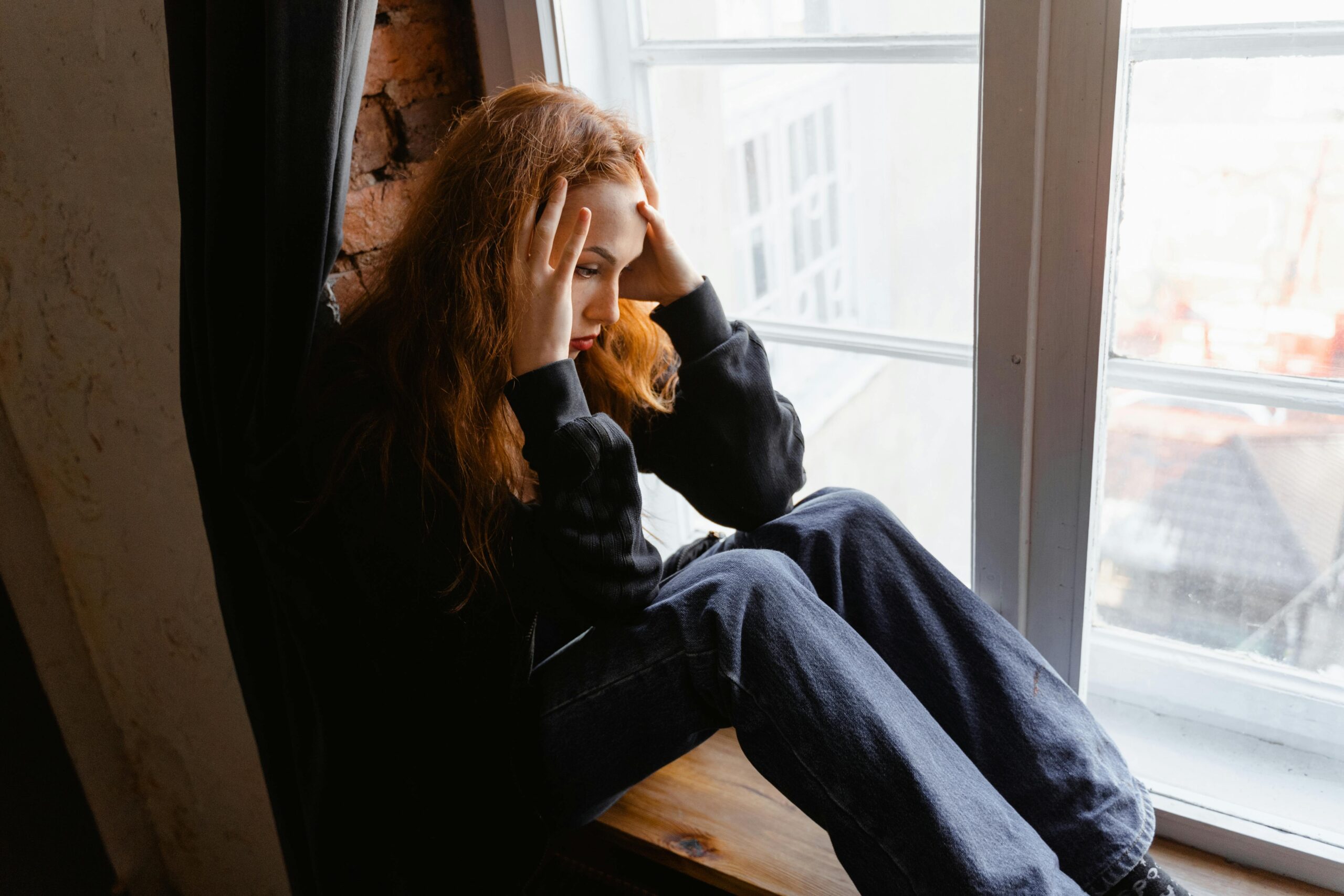
The birth control pill, panic attacks and anxiety
In this article
What's the lowdown?
Experiences of the pill are mixed, some people find it can relieve PMS-induced anxiety, or alternatively, cause mood alterations like anxiety and depression
Although we know the pill is linked to anxiety in some people, researchers don’t yet completely understand why
When taking any new medication it’s not unusual to worry how it might make you feel, sometimes it’s the act of taking it that causes anxiety rather than the pill itself
If you’re struggling with anxiety, seeking the right support is essential to managing your symptoms
Although we know that some people experience anxiety when taking the contraceptive pill, it’s difficult to say exactly what the link is or why some users are more affected than others. In part, this is because the research is poor quality and it’s not always easy to pinpoint why someone feels anxious. In fact, although there are plenty of studies claiming that the contraceptive pill is linked to depression, anxiety and mood changes, there are just as many which dispute this.
In fact, the most recent statement from the College of Sexual and Reproductive Health found that most research evidence shows hormonal contraceptive does not worsen mood or anxiety in those women who have already been diagnosed with depression or anxiety. However, some studies a small negative effect on anxiety for the combined pill over time – but it didn’t differentiate between brands….and at The Lowdown we have so many reviews showing how different brands affect people differently.
So to find out if the contraceptive pill could be the root of your anxiety, let’s take a look at what else could be triggering your symptoms.
Why does the birth control pill make you feel anxious?
For some people, taking the contraceptive pill helps to relieve the anxiety that can come with PMS (premenstrual syndrome) or PMDD (premenstrual dysphoric disorder) and can stop the worrying about pregnancy or periods. Others find that when taking the contraceptive pill, they start experiencing anxious thoughts or physical symptoms of anxiety, such as:
- Heart palpitations or fast heart rate
- Shortness of breath or heavy breathing
- Chest pains
- Sweating
- Pins and needles
- Trembling or shaking
But is the pill responsible? Although we know the pill is linked to anxiety in some people, it’s difficult for researchers to understand why.
There’s little definitive evidence to prove that hormonal changes on the pill are the trigger for anxiety or panic attacks. But we do know that oestrogen and progesterone have an impact on mood, and taking hormonal birth control can impact the levels of these hormones.
There’s also evidence that hormonal changes – like those in pregnancy – can trigger symptoms similar to those of anxiety (like palpitations and sweating), so it’s reasonable to believe that the effects of hormonal contraception might be similar (although the hormonal changes aren’t as dramatic).
Can birth control pills cause anxiety symptoms?
There’s no evidence that the pill itself causes symptoms like palpitations, breathlessness or excessive sweating, but if taking the pill makes you feel anxious, that could lead to these physical symptoms of anxiety. Some people find that palpitations, chest pain or shortness of breath in particular can make them even more anxious and lead to a panic attack.
There are also plenty of non-anxiety triggers for these symptoms. Frequent excessive sweating can be a result of stress, caffeine or alcohol, but also PCOS (polycystic ovarian syndrome) or thyroid problems.
Can the birth control pill cause palpitations?
Palpitations are also commonly triggered by stress, caffeine and alcohol. Less commonly, they can be a result of heart disease or abnormal heart rhythms (arrhythmias). The combined contraceptive pill isn’t suitable for people with arrhythmias or heart disease so it’s important that heart conditions are identified so you can find a safe contraceptive option.
If your palpitations are accompanied by chest pain, shortness of breath, fainting or dizziness, call 999 or go to your local A&E department as these could be signs of something more serious. As with anything, if your symptoms aren’t getting better with lifestyle changes, are worrying you or are affecting your daily life, speak to your GP.
Is it really the pill?
Sometimes it’s the act of taking medication, rather than the medication itself which can trigger anxiety. Even though – with perfect usage – the contraceptive pill is 99% effective at preventing pregnancy (meaning less than 1 in 100 women get pregnant each year), unplanned pregnancy is still a worry for many people using contraception.
You might also be worried about whether you’re taking it correctly, whether you’ve missed a dose or if you’ll run out before you can get another prescription. Luckily we’ve got you covered. Check out our missed pill calculator for clear guidance on what to do.
When taking any new medication it’s not unusual to worry how it might make you feel. Given the countless scare stories and misinformation about the contraceptive pill, it’s unsurprising that people experience health anxiety about side effects or very rare complications like blood clots. If you’ve had a bad experience with contraception in the past, you might also be wondering if something similar will happen again. Check out our contraception reviews to see what other people have to say about different methods.
In general both the combined pill and progestogen only pill are safe and effective methods of birth control, and according to the UN the pill is the contraception of choice for 151 million women worldwide. If you think your anxieties are a result of worrying about your medication (rather than a side effect of your medication), it’s worth speaking to your local pharmacist, GP or one of our women’s health doctors for reassurance.
Can the pill help anxiety?
For some people, taking the contraceptive pill helps to improve the anxiety that can come with PMS (premenstrual syndrome) or PMDD (premenstrual dysphoric disorder). This is especially true if you take the combined pill back to back.
For others, the pill can stop the worrying associated with unplanned pregnancy of you’re having sex. And for those with painful periods or endometriosis, managing your periods with contraceptives can reduce anxiety around them.
Finding the right support
If you’re struggling with anxiety, seeking the right support is essential to managing your symptoms. But, like contraception, what works for one person might not work for you so it’s a good idea to explore all of the options available to you.
If you think your contraceptive pill might be impacting your mental health, ask yourself:
- When did the anxiety begin? When did I start taking my new medication?
- Is there anything stressful happening in my life which could be making me feel anxious?
- Do I have concerns about the pill which are worrying me?
- Have I experienced similar symptoms before?
- Are there any physical symptoms?
- What makes the anxiety better or worse?
If your anxiety isn’t getting better, affects your daily life or seems to be triggered by medication, speak to your GP. If they think there’s a link, they may consider offering you an alternative contraceptive pill or a different method of contraception.
They may also suggest exploring mental health treatment options like medication or cognitive behavioural therapy (CBT).
Many people living with anxiety find that talking therapy helps to ease their symptoms. You can refer yourself for NHS talking therapy, or seek out private therapy with a registered therapist or counsellor.
There are also plenty of helpful tools online to help you manage your anxiety, including meditation apps like Headspace or Calm, Your Mind Plan from NHS Every Mind Matters and self-care and treatment advice from Mind.
Don’t suffer alone, whether it’s caused by your contraceptive or not, help for anxiety is available.
Our medical review process
This article has been medically reviewed for factual and up to date information by a Lowdown doctor.

